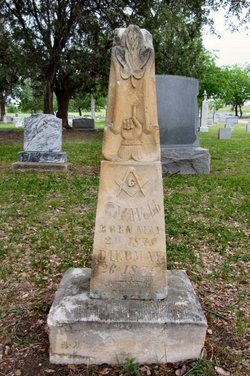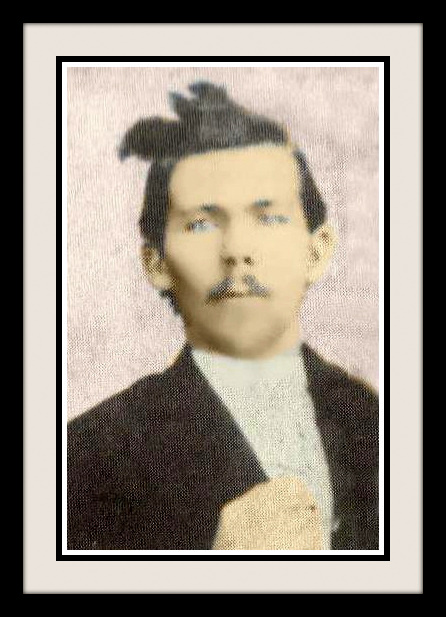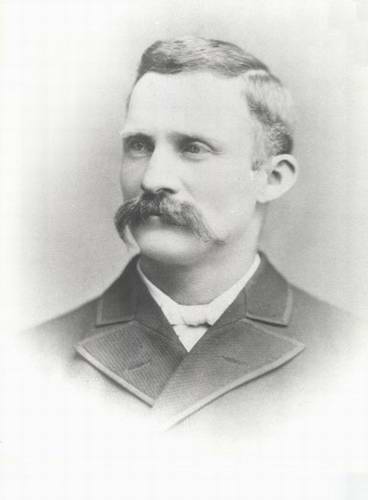I asked Mooseman and he sent a kind response. I am unsure where this fits, if anywhere. I have a sticky at rugerforum but also wanted to post them here as it seems some folk here might find these of interest. I am posting in here first because it's where I post the most. I realize it really doesn't fit at all. Please move to proper place, unless it's "Our Town". If there is no place or interest then feel free to delete. I will, in no way, be offended and I perfectly understand.
Here goes:
Commodore Perry Owens was the real deal, just as the others we have been discussing are. By now all know what I mean by "the real deal". He was a legitimate gunman before he arrived in Holbrook, Arizona in 1887. Clearly he had killed men before, quite likely one was Mart Blevins, a local rustler and relative to the men that are our antagonists in the coming episode. Owens claimed to have killed more than a dozen men in his career. Possible. He had killed a rustler in 1883, for an example.
Commodore Perry Owens both looked and acted the part. "He wore a fringed buckskin jacket, silver-studded leather chaps, and a wide brimmed felt hat" as well as long flowing hair. He was always wearing either a long barreled revolver or a pair of shorter barreled six-shooters. Know to lethal with either hand. His early career is certainly notable and can be looked into but we want to focus on one incident that to my mind demonstrates EXACTLY what kind of a lawman Mr. Owens was. It occurred on September 4, 1887 at shortly after 4pm.
At this time, the Pleasant Valley war was in progress. It involved the Grahams and Tewksbury families and allies. Charlie Blevins and Andy Cooper allied with the Graham family. These brothers are the key players in our little story; along with the other cattle rustling Blevins men. Both were no good. They were well established rustlers and Cooper was suspected of murdering three Navajo Indians.
On November 4, 1886 Commodore Perry Owens won the sheriff's race by a count of 500 to 409 over J. Hubbell. "Owens moved into the Barth Hotel in Saint Johns and started as Apache County sheriff in January 1887."
The stage is set. I know of no better way to begin this than with a quote from one of Owens' deputies. ""Commodore Owens had a great reputation as a brave man and many wonderful things were promised and expected after he was in the sheriff's office. Lawlessness was everywhere."
Owens had tried to remain neutral in the "war". However, he had a warrant for the arrest of Andy Cooper for rustling. He had had this for some length of time but had claimed that he had not seen him. However, three things drew his focus finer. Andy Cooper had been bragging about the killing of John Tewksbury and William Jacobs, He had been given an ultimatum by the county board of commissioners, and he had been given an exact location for Cooper, namely at his mother's home with the entire Blevins crew. I doubt that Cooper boasting that no sheriff was stupid enough to arrest him went unnoticed, also. Make no mistake! These were not simple bad guys, these were true hard cases that did not shy away from killing.
Into this rode our wide brimmed hat wearing, buckskin fringed jacket and silver-studded chaps clad, six-gun toting, Winchester armed sheriff. Alone. He 'parked' his horse at Brown and Kinder's Livery Stable and walked resolutely down the street the clapboard shack of Mother Blevins. Must have been a sight to see! A solitary figure striding down the street in Holbrook- home of the "Bucket of Blood" saloon. Here is what Commodore Perry Owens claims took place, these are his own words.
Commodore Perry Owens testimony at the Inquest:
. . . I went and got my Winchester and went down to arrest Cooper. Before I got there, I saw someone looking out at the door. When I got close to the house, they shut the door. I stepped up on the porch, looked through the window and also looked in the room to my left. I seen Cooper and his brother (John) and others in that room. I called to Cooper to come out. Cooper took out his pistol and also his brother took out his pistol. Then Cooper went from that room into the east room. His brother came to the door on my left, took the door knob in his hand and held the door open a little. Cooper came to the door facing me from the east room. Cooper held this door partly open with his head out. I says, "Cooper I want you." Cooper says, "What do you want with me?" I says, "I have a warrant for you." Cooper says, "What warrant?" I told him the same warrant that I spoke to him about some time ago that I left in Taylor, for horse stealing. Cooper says, "Wait." I says, "Cooper, no wait." Cooper says, "I won't go." I shot him. This brother of his to my left behind me jerked open the door and shot at me, missing me and shot the horse which was standing aside and a little behind me. I whirled my gun and shot at him, and then ran out in the street where I could see all parts of the house. I could see Cooper through the window on his elbow with his head towards the window. He disappeared to the right of the window. I fired through the house expecting to hit him between the shoulders. I stopped a few moments. Some man (Mose Roberts) jumped out of the house on the northeast corner out of a door or window, I can't say, with a six shooter in his right hand and his hat off. There was a wagon or buckboard between he and I. I jumped to one side of the wagon and fired at him. Did not see him any more. I stood there a few moments when there was a boy (Sam Houston Blevins) jumped out of the front of the house with a six shooter in his hands. I shot him. I stayed a few moments longer. I see no other man so I left the house. When passing by the house I see no one but somebody's feet and legs sticking out the door. I then left and came on up town.
Stay tuned for a detailed version of the story, however, I doubt not a word Owens related.
Three dead, one terribly wounded, and worst of all, a dead horse. This took but a single minute.
TBC, at the start of his walk down the street.
A Winchester Model 1873 that once belonged to Owens:


|
   
   
|


|
































 Praise the Lord & Pass the Ammo
Praise the Lord & Pass the Ammo




